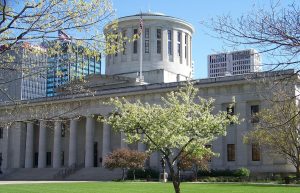Robert Don Gifford represents clientele in a broad range of complex civil and white collar criminal litigation, Native American law, and military law in courts of all jurisdictions. He represents companies in preparing criminal compliance guidelines and corporate criminal risk assessments, as well as individuals charged with state and federal violations.
We got in touch with him this month to discuss a variety of his specialisms. From having a vast amount of experience in Native American Law, to working as a military officer and lawyer on cases at Guantanamo Bay, Robert offers many insights into his work as a legal expert in Oklahoma.
Can you share with LM your experience in Native American law and what it entails? What difficulties did this sector pose for you and how did you overcome them?
The practice of law in the tribal courts or representing tribal governments in non-native courts is some of the most complex and broad areas of law in the United States. The practice is a broad one that includes tribes which includes: negotiations with state and federal governments, gaming law, criminal law, employment law, and nearly every other area of law that is found in any court anywhere. Navigating the jurisdictional complexities and knowing which court has the jurisdiction over a matter is what challenges the courts the most. The difficulties in working in Native American law is the general misunderstanding by many non-Native courts in failing to give “full faith and recognition” to tribal court judgements and orders. These are usually cleared up fairly easily, by providing the non-Native courts the law and authority upfront, but there are many jurisdictions that have no experience in Native American law and are often surprised when the see the complexity of the practice and the high quality of the work that is being done in tribal courts.
How does your experience as a Tribal Court Judge enable you to be ahead of the game for your practice now?
I have been serving part-time as the Chief Judge for one tribe and a justice on another tribe’s Supreme Court for many years. Many people who become judges recognize, for the first time, about what actually makes a difference in a compelling argument or case presentation. Unfortunately for those individuals, they are full-time judges and will likely never have the opportunity to take this perspective and apply it themselves as litigators in the courtroom. Being a tribal member with the Cherokee Nation with nearly fifteen years as a federal prosecutor in different federal courts and over twenty as both an Army active duty and reserve lawyer (Judge Advocate), I brought a perspective to the tribal court bench that was unique. With over one hundred trials and fifteen arguments in the federal appellate courts, I have appeared before a lot of judges and seen good and bad practices from the bench and believe that I have learned from them.
What more could be done for the Tribal Courts to better recognition and respected as a Courts system?
Every tribe in the US is recognised, in the words of Justice John Marshal, as a ‘domestic, dependent sovereign’. In my state (Oklahoma) alone we have 39 separate tribes. The next step for more recognition is for more lawyers to aggressively seek litigation within the tribal court system and challenge those decisions up on appeal. In certain litigation, those cases may move over to non-Native federal courts and could work their way to the United States Supreme Court. There is a fear among many lawyers to use the tribal court system, thus the boundaries have not been fully explored. Many lawyers are failing to recognise the advantages of using the tribal court system, and in doing so are failing to give their clients every viable option.
Do you think this has changed ever since Donald Trump’s appointment as President? What challenges do you foresee for the tribes?
The big question for many will be the speed and ease in which tribes are allowed to take their historic lands back into “trust”. Many of the tribes in the United States are looking at developing their business aspect of their sovereignty, and in doing so must fight to re-claim historical lands to be placed in trust to build casinos, hospitals, and even defence contracting industry. Once this land is taken back into trust, it becomes what is known as ‘Indian Country’ and subject to the jurisdiction of the tribal court for that tribe. If the United States government slows down or denies tribes from putting land into trust, it will slow the growth in many areas.
Moreover, do you foresee more cases involving tribes in legal disputes against non-Natives or even state/federal governments increasing?
Absolutely. In one of the tribal courts in Oklahoma, there is a multi-million-dollar lawsuit against several oil and energy companies. The lawsuits in the tribal court involved the sovereign tribe suing non-Native companies for their alleged involvement in “fracking”; it is being argued that such activity is causing earthquakes and damage to tribal facilities. There will be challenges made to jurisdiction and that litigation over the proper venue could be fought in non-Native courts.
As military officer/lawyer you worked on cases at Guantanamo Bay and as a prosecutor you worked National Security matters, what cases are you often involved in? How do you see this area of law changing with national security being a topical area regarding terrorism?
With over two decades of serving in the military (active duty and reserve component), teaching at several law schools, and being a graduate of the Army War College, I have opened up some doors that may not be there for most lawyers. I have had several military members come to me to help them address investigations from the Navy and the Army, an example is being called to represent a rape victim who was being harassed by a military officer who was being court-martialed, and have been providing legal commentary to the media regarding matters that range from Homeland Security to National Security to military law. These connections with the military have even transitioned to representing military members (and their families) in non-military courts for things that range from divorce to lawsuits.
What was the biggest change you had to adapt to from your transition as a federal prosecutor, to having a private practice?
Building that ‘book of business’. The time it has taken to let the public know that you are now a resource to them is slow and hard to develop. Advertising is not something I seek to do or am comfortable with, as I know that after time accomplishments in and out of the courtroom will lead to referrals and a reputation that draw clients. Leaving the safety-net of the government does require me to take the time to get more involved in non-legal social events and within the community. I can see where many lawyers can get burned out or just do not like the practice of law in the private sector, but for me it has been a natural transition. The change has been refreshing and exciting.
How does your experience with governmental investigations help you assist clients at your private practice?
Every individual or business is going to have to deal with government regulation. Government officials come from the same gene pool as every other human and may believe that a person or a company has engaged in intentional wrongdoing. Sometimes it is a misunderstanding, a clerical error, or a mistake. Other times it is grossly negligent or crossed the line into what is considered a crime. I would say knowing how agencies may view things is key. The relationships between an attorney and government investigators can make the difference from being indicted to paying a small civil or administrative fine. In addition, understanding that the need for an attorney to be aggressive and proactive requires energy and confidence to go into court with little time to prepare and litigate a matter that can be volatile, uncertain, complex, and ambiguous.
How has white collar crime changed in Oklahoma overtime? What could be done to cut down on such cases?
The advancement of technology, the growth of Native American casinos, the increasing number Fortune 500 oil and gas companies in Oklahoma, and government regulation in the health care industry, has created more exposure to otherwise hardworking, law abiding citizens. Most people (or businesses) that find themselves under criminal investigation never had any intent to commit crimes, but sometimes neglect or the temptation to cut corners leads to criminal liability. More and more, the need for learned legal counsel is becoming a necessity. If more people (or businesses) simply took the time and expense to seek the privileged and private advice of an attorney on the front end of things, many criminal problems would never occur.
Can you think of one sector that is the biggest contributor to white collar crime and if so, why do you think that is?
Quite honestly, complex government regulation is probably the biggest contributor. There is so much regulation on both individuals and companies that range from complexities in tax law, immigration law, securities law, etc., that it’s nearly impossible for even a small business owner to know all of the requirements without having to hire outside help. At some point, any person in any situation will be tempted to look for an easier way to do business or make money. In doing so, they are likely breaking a law that has criminal consequences.
You are an adjunct law professor at several law schools, what would you say is the most important pieces of advice for aspiring lawyers to know?
Building a reputation of being only a good lawyer who is not only smart, experienced, but also hardworking, is just not enough. Professionalism and being reasonable wins the day, whether it is in negotiating with other lawyers, advising clients, or making an argument to a judge or jury; these two things will win the day.
Robert Don Gifford
Senior Attorney
101 Park Avenue
Suite 1400
Oklahoma City, OK 73102
www.gungolljackson.com
Prior to joining Gungoll, Jackson, Box & Devoll, P.C., Gifford worked for the U.S. Department of Justice as an Assistant United States Attorney doing both trial and appellate work, where over time he served as the Tribal Liaison, Human Trafficking Coordinator, Anti-Terrorism Coordinator, and Project Safe Neighborhoods Coordinator. During his career with the Department of Justice, Mr. Gifford has been honored for outstanding performance by the Director of the Federal Bureau of Investigation (2006 & 2015), Director of the United States Marshal's Service (2008), and the United States Department of Agriculture (2004).
Mr. Gifford began his legal career for the Cherokee Nation under Chief Wilma Mankiller, served as an Assistant District Attorney in Tulsa and as an active duty Army Lawyer as an Army Judge Advocate at Fort Sill, Oklahoma, Fort Knox, Kentucky, and in Bosnia-Herzegovina. Now a Colonel in the Army Reserves, Gifford has served in the Army for over twenty years on active duty and as a Reservist. In 2007-08, Colonel Gifford mobilized back onto active duty to the "War Courts" at Guantanamo Bay where he served as the Legal Spokesman to the world-wide media and Deputy Director of Legal Operations.
Mr. Gifford earned his Juris Doctor from the University of Oklahoma College of Law where he served as an Editor on the American Indian Law Review. Mr. Gifford graduated with honors from Southwestern College in Winfield, Kansas where he lettered four years in both football and track, and he also holds a Masters in Strategic Studies from the U.S. Army War College at Carlisle Barracks, Pennsylvania.
Mr. Gifford is the 2018 Chair of the Criminal Law Section of the Oklahoma Bar Association, a fellow of the Oklahoma Bar Foundation, the founder and two-time past chair of the Military & Veterans Law Section, and previously served on the Board of Governors for the 17,000 members of the Oklahoma Bar Association. The Oklahoma Bar Association's Criminal Law Section named Mr. Gifford "Professional Advocate of the Year" in 2013 and recognized him with the Justice Cardozo Award in 2016.
Over thirty years ago, three young attorneys formed Gungoll, Jackson & Collins with the goal of providing clients with legal representation that serves their diverse needs. Today, Gungoll, Jackson, Box & Devoll, P.C. is a diverse compilation of seasoned legal professionals who, with pride and integrity, represent individuals and local companies, as well as large commercial corporations in numerous areas of the law.
The attorneys and staff at this highly respected AV-rated firm work diligently to serve clients throughout the Midwest with litigation needs, whether it is a matter of negotiations, a trial, an appeal, arbitration or mediation. With access to numerous legal resources and cutting edge technological solutions, they do quality work in the timeliest manner.
Civil litigation, commercial transactions, insolvency and reorganization, real estate transactions, trusts and estates, oil and gas, environmental law, family law, employment law, criminal defence, municipal law, personal injury and appeals are among the areas encompassed by the firm's practice.




















